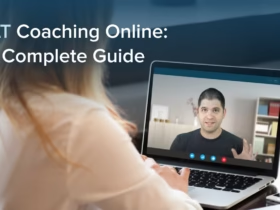Key Takeaways
- Social media indirectly boosts SEO by increasing website traffic, brand visibility, and the likelihood of earning backlinks.
- A strategic and consistent social media content plan is essential for maintaining audience engagement and amplifying content reach.
- Influencer partnerships can rapidly expand brand exposure and credibility, driving qualified traffic and potential conversions.
- Monitoring key social media metrics like engagement rate, CTR, and content shares helps refine strategies and align them with SEO goals.
- Integrating social media and SEO efforts creates a feedback loop that improves discoverability, content relevance, and user engagement.
Introduction to Social Media for SEO
Social media platforms have transcended their origins as simple tools for personal connection, evolving into critical components of any robust digital marketing strategy. Companies worldwide, including those specializing in San Francisco SEO, have realized how these platforms can significantly contribute to their search engine optimization (SEO) efforts. This synergy facilitates the enhancement of online visibility, effectively driving a more significant portion of organic traffic to their digital content.
SEO in San Francisco is highly competitive due to the city’s concentration of tech companies and startups. Businesses invest in advanced SEO strategies to stand out in local search results and attract targeted traffic. Local SEO, including Google Business Profile optimization and localized content, plays a crucial role in reaching customers in the Bay Area.
The influence of social media on SEO, although indirect, is profound. By generating engaging content and promoting it across various social platforms, companies can increase their domain authority. This process can subsequently improve search rankings as social interactions amplify the potential reach and impact of digital content. Each share, comment, and like is an opportunity to broaden audience exposure and generate valuable site traffic.
Understanding the Connection Between Social Media and SEO
Although search engines like Google do not include social media activity as a direct ranking factor, the benefits provided by social media to SEO are substantial. Social interactions can lead to increased website traffic, and higher traffic often signals engagement. This, in turn, can be interpreted by search engines as an indicator of content value and relevance. Moreover, as content gets shared across platforms, it increases the likelihood of earning backlinks—a key SEO ranking factor.
Additionally, social media enhances brand recognition and establishes audience trust, which indirectly boosts search rankings. When users encounter content from a known and respected brand, they are more likely to engage with it, possibly influencing their search behaviors and preferences.
Developing a Social Media Content Plan
Ensuring consistent engagement on social media demands a well-structured content plan. The plan should ideally identify optimal posting times and include diversified content types to maintain audience interest and engagement. Interactive elements like polls, Q&A sessions, and visually rich media, like infographics and videos should be strategically integrated into the content lineup to provide variety and sustain interest.
Moreover, aligning content with current trends and audience preferences increases its shareability, thereby extending its reach and impact. Such planning also facilitates the regular evaluation of content performance, allowing continuous optimization of the social media strategy.
Leveraging Influencer Partnerships
Influencer partnerships have turned out to be a transformative strategy for brands aiming to expand their social media outreach. By engaging with influencers whose audiences align with the brand’s target demographic, businesses can achieve wider exposure and enhanced credibility almost instantaneously. Influencers leverage their trusted status with followers to authenticate brand messages, driving traffic and potential conversions.
The evolving landscape of influencer marketing emphasizes the importance of finding compatible partners who genuinely resonate with your brand values and messaging. This alignment ensures an authentic integration of brand narratives into influencer content, fostering genuine interactions and maximizing impact.
Tracking Social Media Metrics
Analyzing social media metrics is essential for gauging the efficacy of your strategies, providing insights into what works well and what might require adjustment. Various analytics tools are available to track key performance indicators such as engagement rates, click-through rates (CTR), and follower growth. Understanding these metrics lets businesses fine-tune their approaches and align social media activities more closely with their SEO objectives.
Key Metrics to Monitor:
- Engagement Rate: Measures the level of interaction audiences have with your content, including likes, shares, and comments.
- Click-Through Rate (CTR): Indicates the frequency with which users click on website links embedded in your social media posts.
- Follower Growth: Reflects changes in audience size over time, indicating growing interest in your brand.
- Content Shares: Measures how often your content is shared across platforms, expanding its reach and potential impact.
Integrating Social Media with Your SEO Strategy
A comprehensive digital strategy demands a seamless integration of social media initiatives and SEO efforts. Optimizing social media profiles to include carefully selected keywords and maintaining consistent branding are critical steps in enhancing overall discoverability. Engaging regularly with your audience through meaningful interactions strengthens community bonds and cultivates brand loyalty.
This integration encompasses utilizing social media as a feedback loop, allowing businesses to understand audience preferences better and adapt their SEO strategies accordingly. Consistent monitoring and adaptation ensure that both social media content and SEO strategies remain relevant and effective.
Case Studies: Brands that Successfully Used Social Media for SEO
- Brand A: By leveraging Instagram stories as a traffic-driving tool, Brand A saw a remarkable 20% increase in website visits, effectively integrating social media content with broader marketing objectives.
- Brand B: Harnessing the power of Twitter chats, Brand B successfully engaged with industry professionals and enthusiasts, substantially enhancing their backlink profile and digital presence.
Conclusion: Harnessing the Power of Social Media
Ultimately, the role of social media in augmenting SEO efforts is indispensable. By crafting a strategic content plan, engaging in influencer collaboration, and continuously tracking performance metrics, businesses can significantly bolster their online visibility and effectiveness. For a more detailed exploration of social media’s impact on SEO, explore Search Engine Watch’s in-depth guide on this topic.








